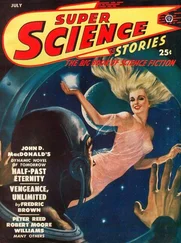Nancy Raymond phoned me at five o’clock. She wanted to talk to me but wouldn’t say what it was about. She wanted me to meet her at Raphael’s, a little place on Broad, not far from the bridge. I agreed.
Toni finished up at about twenty after five. I walked out onto the catwalk and looked down at the big silent production area. I watched Toni walk down the walk toward the iron staircase. She wore a brown linen suit with a burnt orange scarf knotted around her neck. Her long legs swung nicely, hips moving firmly under brown linen, dark head held high. She went out of sight down the circular stairs, heels tamping the metal — and reappeared below. She smiled up at me, flash of white teeth in shadowed face, and then she was gone. I heard the muted distant bell as she punched out.
Raphael’s is a logical outgrowth of the new money that has come to town. It is a small place, wedged in where there was logically no room for it. It is ten feet wide and quite deep. Forty feet from the front door it makes a right angle turn and widens out to twenty feet. A zebra-striped spinet piano sits in the angle, dividing the bar from the lounge. During the cocktail hour a girl with lovely bare shoulders sits at the piano, facing a tilted mirror that is placed in the angle of the wall in such a way that from bar or lounge you can see her face and her clever fingers. The lighting is muted, the soundproofing dense, the chairs deep. People talk softly there, drink quietly, and make little schemes that break hearts.
Nancy smiled at me from a corner of the lounge as I walked toward her. She looked as though she had been there some time. She had done something severe with her hair and it made her head look too small.
The waiter came over to the table as I sat. All the other tables were occupied. I asked for a martini. He replaced the ashtray, took Nancy’s empty glass and eased away.
“I’ve had two for courage, Clint,” she said. “No, don’t look like that. I’m not going to make problems for you like I did that time at the club.”
“I wouldn’t mind if you did. Old reliable Clint.”
“Yes you would mind. And so would I. I don’t know... how to start this.”
“Just start.”
She paused while the drinks came. “I told you that we quarreled and Dodd went out and didn’t come back until five. Remember that?”
“Yes, of course.”
“I guess you’re the only person who knows that. He picked me up yesterday to take me out to Pryor’s and on the way out he said, very reasonably, that if something had happened to Mary, it might cause a lot of unnecessary talk and trouble if he had to account for that period of time. He told me that he had driven out of town, maybe fifty or sixty miles. He said he had parked beside the road and smoked and listened to the car radio. He said that he was merely sulking like a child, and wanted me to be worried about him. He hadn’t seen anyone. He said that after he was there about an hour, he turned around and came home, a little ashamed of himself. He said it would be a lot simpler if I would say that we had gone right home from the club and he hadn’t gone out at all.”
“You agreed to that?”
“Wait a minute. I said I would think about it. I said that I didn’t think it was wise to tell lies to the police. I said if I lied and they found out I had lied, it might make him look worse. Well, you know what happened at that meeting. It certainly seemed to me that Nels Yeagger had done it and they’d prove it — I just had that feeling. So when Sergeant Hilver asked me, I told him just what Dodd wanted me to say. Last night that Paul France came by the house. I told the same lie again. You saw the morning paper. They released Nels.”
“Yes?”
She lifted her glass in an uncertain hand. “Clint, I just don’t know what to think any more.”
“Are you trying to say this? Are you trying to say that now you’re wondering if he could have killed her? And you want me to tell you that’s nonsense?”
She looked down and when she looked up again, I heard tears in her voice. One tear rolled down her cheek and she wiped at it quickly with the back of her hand, a child’s appealing gesture. “I just don’t know any more. I just don’t know. And I don’t know anyone else to talk to.”
“What has started you wondering?”
“He’s been... so very strange. He hasn’t been himself, I guess not since we came here to Warren. Last night he was up most of the night, pacing around. He doesn’t hear me when I speak to him.”
I told her of my conversation with him in the washroom. Perhaps I should have edited it.
“Six or seven times,” she said, a bitter expression on her mouth. “And I know nothing about it. Nothing at all. I suppose these things should have a mathematical value. Six or seven is better than twenty. But one is equal to a hundred, isn’t it?”
“I can’t see him killing her, Nancy. Not Dodd. He’d risk an affair, but not a murder. He’s too cold to risk murder. Too cold and too hard and too ambitious and... perhaps too selfish.”
I had hoped to comfort her. It was the wrong way. Her eyes flashed. “How can you say that? How can you say a thing like that? People have always liked him and always liked working with him. You’re entirely wrong about him. Entirely!”
I thought of Tory’s warning, and Ray’s warning. I could have told her, but I realized that she didn’t have much left. By telling her I would be taking away one more thing, the illusion he had created in her mind. Even though he had hurt her dreadfully with infidelity, she perhaps had a right to be proud of his professional makeup.
“Maybe I’m wrong about that, Nancy.”
“You are, Clint.”
It surprised me a little that Nancy had never been aware of his ruthlessness in business. He had pretended with her, as with everyone else. I wondered if there was anyone he showed his real face to. I wondered if he had been frank with Mary Olan.
She shivered. “It’s awful of me to keep wondering if he could have done it. If he acted normal, I wouldn’t keep wondering. But he has something on his mind — something so important he seems far away, as if I don’t really know him any more.”
“It may be that he’s just afraid of the police finding out about the affair.”
“I’ve thought of that,” she said eagerly. “Clint, he couldn’t kill anybody, could he?”
“I don’t think so.”
She was happier for a moment, and then relapsed again into worry. She laughed, and it was an unhappy sound. “Six months ago,” she said, “I would have sworn that it was impossible that he’d ever... look for someone else. But he did. So what good is confidence?”
“There’s one way you can end the tension, Nancy.”
“How?”
“Tell Kruslov the truth about the night Mary was killed. He’ll find out if Dodd killed her.”
She looked at me blankly for what seemed a long time. She put on her gloves. “Thanks for listening to me, Clint. I thought you’d be able to help me. I’m sorry I was wrong.”
I watched her leave and sat down again. Poor Nancy. Her vast capacity for loyalty was at war with the hurt he had dealt her. She was a woman who seemed to have a face and a mind planned for a narrower, frailer body. There was something almost cumbersome about the richness of her body, as though it burdened her, troubled her, astonished her. As though it waited patiently, in thrall to the more pallid mind, yet knowing that when its inevitable moments came, it would once again, as so many times in the past, take full strong command of the total organism.
It was easy to sense that with her, physical love was a complete fulfillment, honestly given, honestly accepted. Betrayal struck her more deeply that it would a wife who merely endured the assault of the flesh. The completion she had found with him had given her a loyalty of mind and body as well. A loyalty too strong to admit any genuine suspicion that he could have done murder. She teased herself with speculation, punished herself with suspicion that was never deep nor honest.
Читать дальше
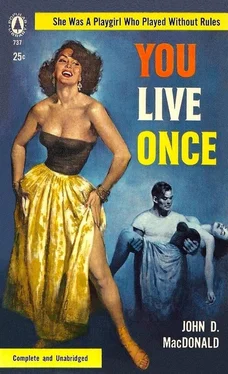
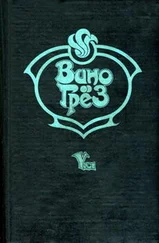
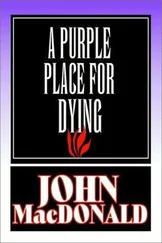


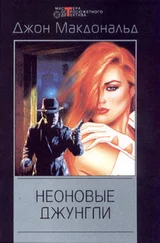

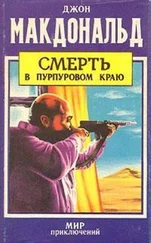
![Джон Макдональд - Wine of the Dreamers [= Planet of the Dreamers]](/books/430039/dzhon-makdonald-wine-of-the-dreamers-planet-of-thumb.webp)
![Джон Макдональд - Finding Anne Farley [= Ring My Love with Diamonds]](/books/430180/dzhon-makdonald-finding-anne-farley-ring-my-lov-thumb.webp)

